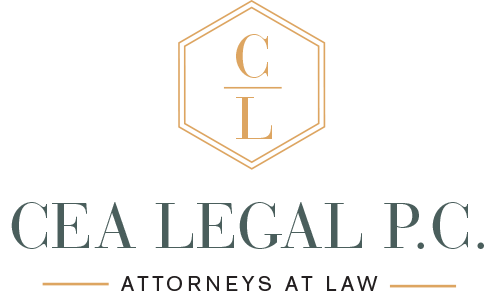CEA Legal - NFT Licenses
As widely known, Non-Fungible Tokens (NFTs) are digital assets that register an immutable transaction on the blockchain. However, often it is not very clear what legal rights the purchaser obtains with the digital asset embedded in the NFT.
One of the questions that our clients ask us on a regular basis is what legal rights are transferred with a specific NFT. A very simple answer is that purchasers are not automatically granted copyrights, and therefore they cannot publicly display, adapt, or reproduce the digital asset purchased, unless consented by the previous owner. The latitude of such consent is detailed in NFT licenses, which however have been used and applied randomly to date. Often NFT licenses are not stored on the blockchain, thus leaving purchasers facing the significant risk that licenses’ terms are going to be modified contrary to their expectations.
Recently a very welcome standardized set of NFT licenses touted as “Can’t Be Evil” has been proposed by a16z, a leading venture capital firm mainly investing in IT and Web3 companies. The important goal rests on making the rights of NFT creators and initial sellers and subsequent purchasers clear, transparent and stored on the blockchain, thus making them visible to everybody.
The ”Can’t Be Evil” framework proposes six licenses:
1 – Exclusive Commercial Rights with No Creator Retention (“CBE-ECR”):
The purchaser obtains exclusive rights to commercialize the NFT digital asset or to bring enforcement actions against the infringers, while the creator is prohibited from taking these actions
2 – Non-Exclusive Commercial Rights with Creator Retention (“CBE-NECR”):
Both the creator and the purchaser have non-exclusive rights to commercialize the NFT digital assets or to bring enforcement actions against the infringers.
3 – Non-Exclusive Commercial Rights with Creator Retention & Hate Speech Termination (“CBE-NECR-HS”):
Same features as the above CBE-NECR, but the creator retains the right to terminate the license (or to delegate this decision to a committee or a decentralized autonomous organization (DAO)) if the certain standards are violated as determined by Creator.
4 – Personal License (“CBE-PR”):
The purchaser obtains only personal, non-commercials, while modifications or derivative works of the NFT digital asset are not permitted.
5 – Personal License with Hate Speech Termination (“CBE-PR-HS”):
Same features as the above CBE-PR, but the creator retains the right to terminate the license (or to delegate this decision to a committee or a decentralized autonomous organization (DAO)) if the certain standards are violated as determined by Creator.
6 – CC0 Universal developed by “Creative Commons” (“CBE-CC0”)
The creator releases all the copyrights in the NFT digital asset to the public. As such, this license does not include personal or commercial restrictions and termination rights. The creators of Non-Exclusive Commercial Rights licenses can apply the CC0 standard at a later point.
The CC0 standard has gained increased popularity recently after being adopted by some successful NFT projects. The goal of the creators adopting CC0 standards is to allow others to build upon and enhance the project.


